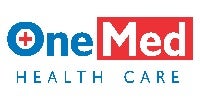Based in Surabaya, East Java, Indonesia, OneMed Healthcare is a leading medical supply and equipment provider in Indonesia. Its products range from medical disposable, antiseptic and disinfectant products to hospital furniture and other consumer medical products, such as pregnancy tests. It is ISO 9001-2000 and Indonesia GMP certified.
Early in its lifespan, OneMed Healthcare hired a developer to create a custom ERP to run the small company. The program operated well when the company was small but once it grew from five to 15 offices, the program began to break down.
“At the time we had 15 branches, it couldn’t deliver what we wanted,” says Louis, Hartanto, who co-owns the company with his father and is also its business development manager. “The program was struggling, and it was not designed to scale.”
The software couldn’t handle concurrent use by more than 150 users, security wasn’t good, and the program was limited, he says. “The program often crashed, and we had to restart the server every two hours because too much was happening inside the program.” On a bad day, the system was down for two to three hours. On a good day, it might be down for one to two, he says.
As a result, he eventually had to create a schedule giving different branches a set time limit of when they could use the ERP each day.
The home-grown ERP also didn’t have the functionality One Med needed. For example, to get a financial snapshot or reports, the company had to pay the developer, which was costly. It also took a few days to get the reports. The system, Hartanto explains, didn’t have dashboards and was complicated and convoluted.
In addition, while it offered basic accounting functions, it didn’t have a sales order process, just invoicing. The software also lacked the ability to assign access levels, so everyone could see sensitive financial information.
With the continued crashes and lost productivity, Hartanto knew he needed to make a change.
 Canada (English)
Canada (English)
 Colombia
Colombia
 Caribbean and Puerto Rico
Caribbean and Puerto Rico
 Ecuador
Ecuador
 India
India
 Indonesia
Indonesia
 Ireland
Ireland
 Malaysia
Malaysia
 Mexico
Mexico
 Panama
Panama
 Peru
Peru
 Philippines
Philippines
 Singapore
Singapore
 South Africa
South Africa
 Sri Lanka
Sri Lanka
 Thailand
Thailand
 United Kingdom
United Kingdom
 United States
United States







